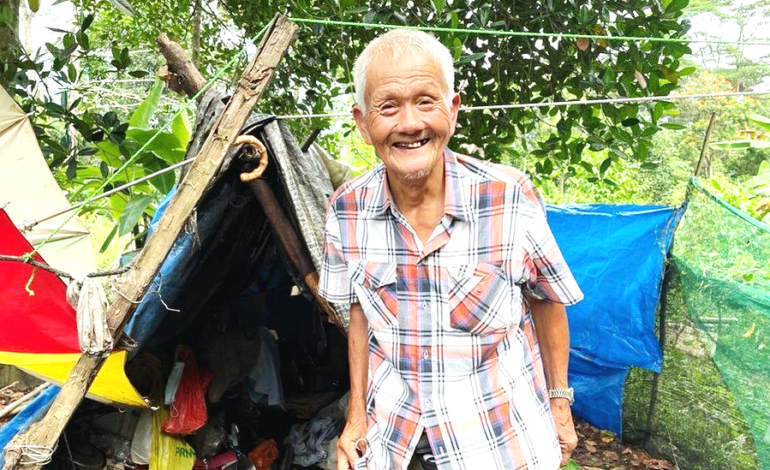
Avellon Williams
SINGAPORE- Located in Southeast Asia, Singapore is known for its strict laws, rapid economic growth, and high-quality infrastructure and public services.
In reality, for one man, it couldn’t be further from home – a makeshift shelter deep in the country’s forests. Mr. Oh Go Seng wears his 79 years very lightly, looking in better shape than many people half his age.
In recent weeks, Mr. Oh’s story of living in the forest has gone viral in Singapore, shocking many across the country. Some wondered why he had not gotten more help – and even more curiously, how he had been able to live this life unbeknownst to the rest of the world for 30 years.
A TROUBLE CHRISTMAS
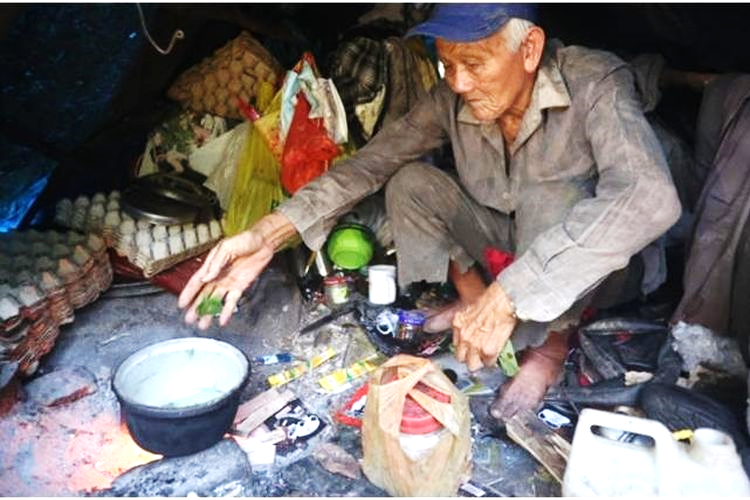
In the early morning hours of Christmas Day 2021, officials discovered Mr. Oh to be trading without a license. He was selling leafy vegetables and chilies he had grown – after the pandemic forced him out of his job of selling flowers at markets.
Mr. Oh believes he had been reported by a disgruntled customer who was angry about the SG$1 (£0.55) he was charging for his goods. In that moment, a charity worker happened to be passing and noticed officials confiscating Mr. Oh’s vegetables.
According to Vivian Pan, she felt “angry” on his behalf, adding:
I didn’t want him to go home empty-handed that day. However, I understand that they cannot sell on the street, as per the law,” she explained.
Having filmed the incident, she uploaded it to Facebook – where it quickly went viral, bringing Mr. Oh’s case to the attention of a member of parliament in the area. A short while later, Liang EngHwa, the MP, learned that Mr. Oh’s story was far from over.
Mr. Oh had been living unnoticed for 30 years in a deep forest.
THE FOREST IS MY HOME
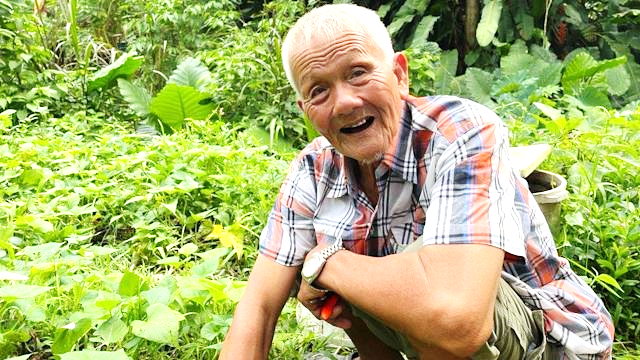
Sungei Tengah – a kampong – or village – is where Mr. Oh grew up together with his family.
During the 1980s, however, many of these kampongs were demolished to make way for new high-rise buildings. Most kampong residents were offered new homes by the government, but Mr. Oh was not able to obtain one.
Nevertheless, his brother got a government flat and Mr. Oh was invited to live there – but he left as he did not want to intrude on the family. As a consequence, Mr. Oh headed back to a forest near the place his old home once stood and began spending nights in a makeshift shelter made of bamboo, wood, and tarpaulin.
When you approach the shelter, you see ashes in the doorway from the open fire Mr. Oh would use to cook. In the middle of the shelter sits his belonging, with his sleeping area in the back of the tent.
Growing of his food was done in his garden near his tent. Clotheslines zig-zag between the trees and a fence protects the vegetable plot from intruders. His tent was shaded by a towering jackfruit tree, which enabled him to feel comfortable despite the sweltering tropical heat and humidity of Singapore.
As for loneliness, he says it was never an issue. His garden kept him busy, although, he adds, the good growing conditions made that a little easier. He says that the mice were the most frustrating aspect of living in the forest. The mice chewed holes in his clothes and found their way into his shelter.
Additionally, he worked a variety of casual jobs whenever he had the chance.
From time to time, Mr. Oh would use the money he earned to take a ferry to Batam, a small island in neighbouring Indonesia. There he met Madam Tacih, with whom he had a daughter.
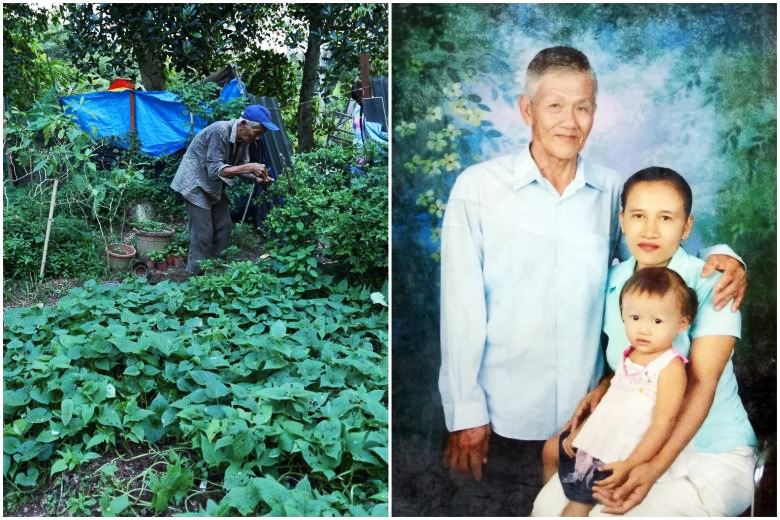
Nevertheless, after visiting Batam on the weekends, Mr. Oh returned to his forest home in Singapore. Mr. Oh’s wife and daughter, who is now 17, say they had no idea how he lived in Singapore. According to a relative, he would always answer questions about where he lived by saying “I live in a garden.”.
Upon the pandemic’s arrival, Mr. Oh’s trips to Batam stopped. Singapore shut its borders and only allowed those who could pay for quarantine and Covid-19 tests to travel. However, he continued to support his family financially by sending them S$500 – S$600 a month.
Singapore has a relatively low rate of homelessness. The country’s population is one of the wealthiest on Earth. The latest figures from the World Bank data show a gross domestic product (GDP) per capita of nearly $60,000 (£44,300).
Almost 80 percent of Singapore’s residents reside in public housing, which is subsidized, constructed, and managed by the Housing Development Board (HDB). It is estimated that around 1,000 Singaporeans are homeless, even though rough sleeping is not a common sight in the city.
‘I WATCHED TELEVISION FOR THE FIRST TIME’
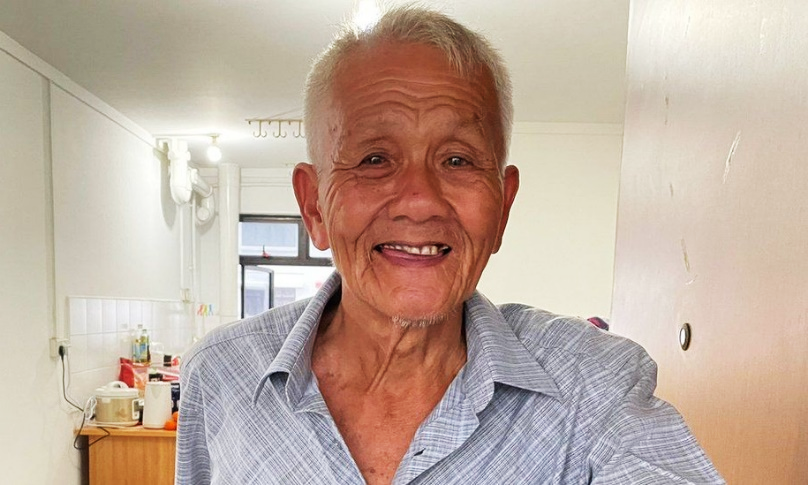
In February of this year, on the first day of the Lunar New Year, Mr. Oh was given a new home with the aid of his local MP’s office.
Mr. Liang said the team would continue “assisting Mr. Oh, including helping him seek longer-term social assistance [and] reuniting him with his wife and daughter in Indonesia”.
The one-bedroom apartment he now shares with another man is small and sparsely furnished. Well-wishers have donated a refrigerator, Television, kettle, and water heater for the flat in addition to a few personal items.
Mr. Oh is especially pleased with the water heater. In the forest, he was used to washing in water from the pond next to his shelter and found tap water too cold.
Currently, he works as a driver transporting foreign workers from one job to another. He also does gardening work at times.
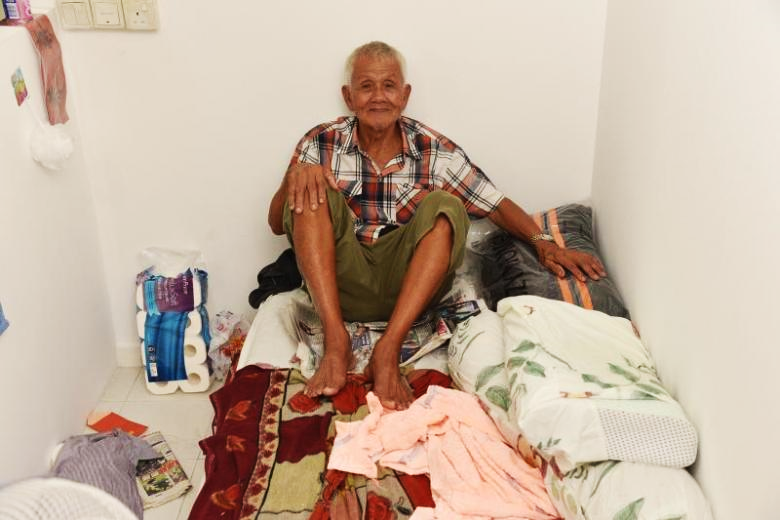
During his moving-in day, he also celebrated Lunar New Year with his family in Singapore for the first time in more than three decades. In his own words “I ate so much! And there were many kinds of food I hadn’t tasted in years! ” he laughs.
“It was wonderful. I also got to watch television for the first time in more than 30 years. I enjoyed it so much.”
Although Mr. Oh says he prefers living in a flat, he still misses the freedom of living in the forest.
“I lived there for so many years, so yes naturally I do miss it,” he said in Hokkien, a Chinese language.
“Even now I return to the forest every single day. I wake up at 3 AM, get dressed, and head out to check on my vegetables, all before my workday begins.”





Recent Comments